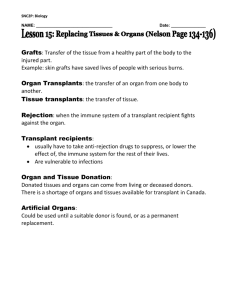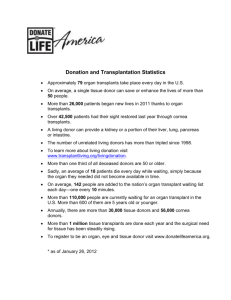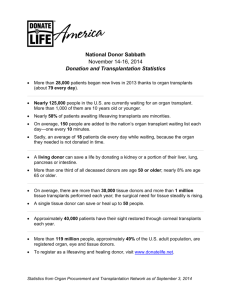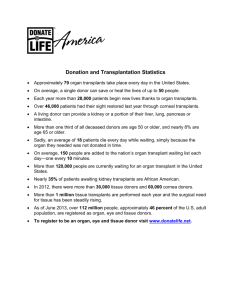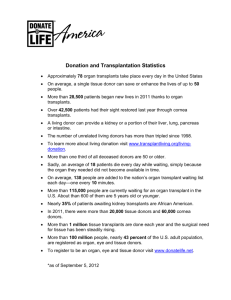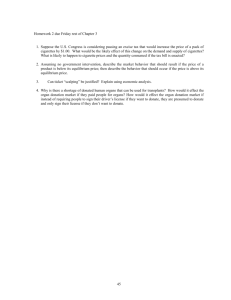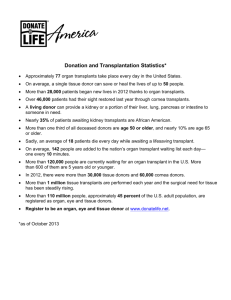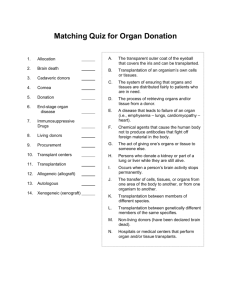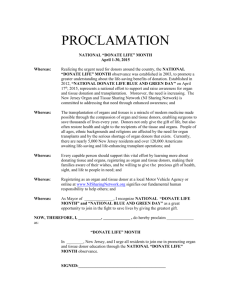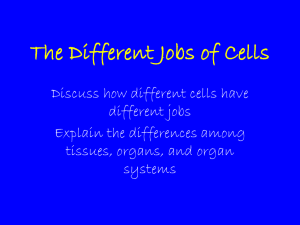Organ transplants
advertisement
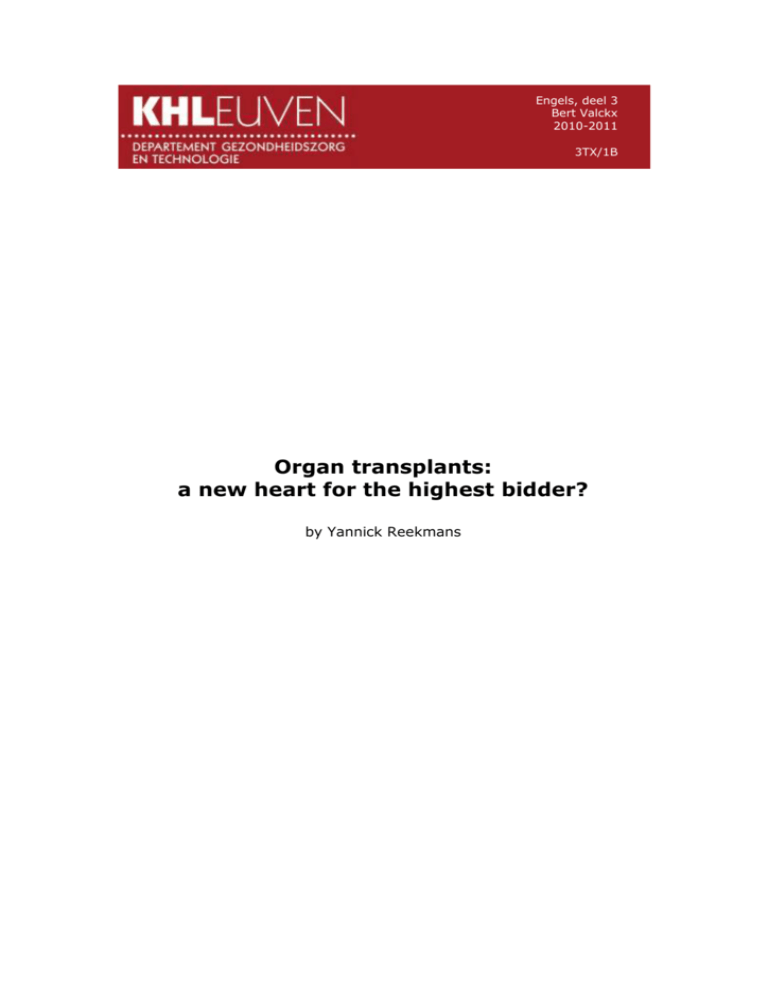
Engels, deel 3 Bert Valckx 2010-2011 3TX/1B Organ transplants: a new heart for the highest bidder? by Yannick Reekmans This is something I have been thinking about before, I already donate blood and then you get asked if you want to give away some organs when you die. So I’d like to share some of my thoughts in this paper. The problem with organ transplants lies in acquiring a new organ: do we do this on a first come first served basis or do we give them out to the highest bidders or maybe some other means? These are the questions we are facing today, but in my opinion as of yet we haven’t found the best way of handling this. Someone that is in more need of an organ can still pass those who are waiting longer on the transplant list, so there is never certainty. This leads to black market trading at high costs and the abduction and murder of innocent third world people, just for their organs. The only way of avoiding this problem lies in having enough donors for everyone. So we need to convince more people to donate when they die. In theory everyone is automatically a donor, in practice this is almost never forced or in those particular cases it’s a decision mostly fought against by the deceased’s family. For me personally, looking at the basics of saving another human life with one or more of my organs after dying I find this a noble thing to do. But I don’t want to be chopped up in pieces to give a lung to a smoker, for example. My organs should go to someone deserving them, but who am I to judge whether or not someone deserves to live a little longer? Still, I’m sure those are questions a lot of potential donors are dealing with and no satisfying answer can be provided. This of course does not mean I don’t think illegal organ trading should be handled with more force; there is no one in his right mind that can defend this. No one is more deserving of an organ just because he pays more. Too bad the only other option is waiting. Waiting and waiting, until someone with the correct set of conditions shows up and his organs are harvested carefully. This makes it a lot harder for them to keep up hope, there is no estimate of being cured and this starts to weigh on people. Doctors like to avoid this kind of mental state, because it hurts the healing process and even might speed up dying, the one thing they are trying to avoid by finding an organ to transplant. As said before, the only way of avoiding black market trading and helping more people at a faster rate, is by having enough donors. There are some organisations already campaigning to raise awareness of this lingering problem, but it seems like the effect is still minimal. It is all our responsibility to participate in the actions taken against this problem and to make sure our government does something as well. It is time for action!
